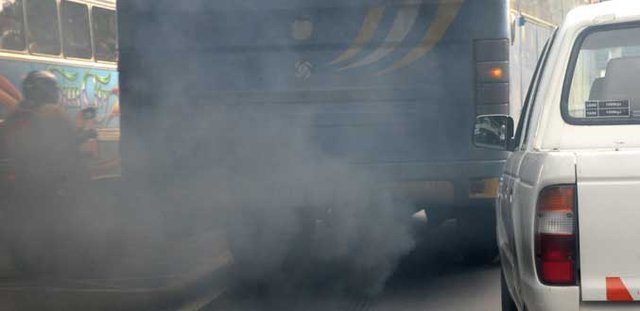Parliament: A carbon tax introduced to penalize the most polluting vehicles

The carbon tax on vehicles will soon become a reality. The Excise (Amendment) Bill will be introduced for first reading on Tuesday 12 July at the National Assembly by the Minister of Finance, Pravind Jugnauth. This is to amend the law on excise duties in order to introduce a new tax on carbon emissions from vehicles.
Will be introduced in the legislation governing excise duties, an amendment that specifically concern the emission level of exhaust pipes. The amount of tax on each vehicle will be calculated from the number of grams of carbon emitted per kilometer.
The law provides a minimum rate of 158 grams per kilometer, which will be exempt. From this threshold, an excise tax will be collected from the sales price of each vehicle.
The fee will be equal to the emission level, less the allowed 158 grams, multiplied by a fixed amount per gram. This amount will vary depending on the level of pollution from vehicles. A car that will emit up to 190 grams of carbon per kilometer will be punished by an additional tax of Rs 2000 per gram beyond the limit of 158 grams. Which amount to a sum ranging between Rs 2000 and Rs 64,000, the calculation is thus: 190-158 = 48, multiplied by 2000.
The amount of tax per gram increase in proportion to the emission level and may reach Rs 5000 for cars emitting more than 290 grams of carbon per kilometer. Thus, the most polluting cars will see their prices increase by more than Rs 660 000: 290-158 x 132 = 5000.
On cars that pollute less than the limit, they will receive a rebate of excise duties exist. The amount of the rebate will be calculated using the same formula identified for the carbon tax. The result will, therefore, negative, for vehicles with emission levels below the threshold identified. This negative number equal to the amount of the rebate.
The measurement of carbon emissions will be modeled on existing European standards as defined by the Economic Commission for Europe of the United Nations. Each new vehicle will have to import on arrival have a certificate issued by the manufacturer and based on the above standards. Certificates for reconditioned vehicles will be issued by an accredited according to these specifications.
The proposed amendments provide for the establishment of a technical certification will be responsible to certify the carbon footprint of each type of vehicle. This committee will be chaired by the Director of the Bureau of Statistics will also have a member representing the Director of the Mauritius Revenue Authority (MRA), representatives of the Ministry of Finance, the Ministry of Environment and the Ministry of Commerce and that an officer of the National Transport Authority (NTA).
The minimum rate of 158 grams / km will not be fixed. It shall remain in force for the current year and next year.From 2013, the Director of MRA and an officer of the Ministry of Finance will determine a new rate from the data of carbon dioxide emissions from the previous year. This exercise will be conducted annually in January.
However, the new legislation will not cover electric cars, which, according to the provisions of the proposed amendments, would find themselves under the category of zero-emission. According to information gathered from the Ministry of Finance, separate legislation will be introduced in a second step, to account for electric cars.
In the case of zero emission vehicles, take into account other factors including pollution caused by the production of energy used to power the car.
A study by Renault, the use of an electric car would save about 20% compared to a conventional vehicle. Must be taken to consider the power consumption required to recharge the batteries of the car but also the time when the recharge is done.
Charging is often to rush hour, that is to say in the early evening where the use of the most polluting turbines is necessary to meet the high demand for electricity.
Related News


